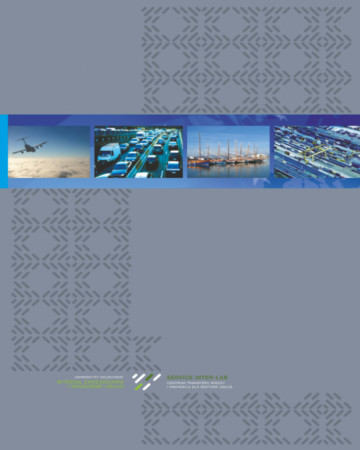
ISSN: 1644-275X
eISSN: 2353-3005
OAI
DOI: 10.18276/ptl.2018.44-03


Issue archive /
nr 4 (44) 2018
ROZWÓJ INFRASTRUKTURY PALIW ALTERNATYWNYCH W POLSKICH PORTACH MORSKICH I ŚRÓDLĄDOWYCH W LATACH 2020–2030
(DEVELOPMENT OF ALTERNATIVE FUEL INFRASTRUCTURE IN POLAND MARITIME AND INLAND WATERWAYS TRANSPORT IN 2020–2030)
| Authors: |
Magdalena
Kaup
Zachodniopomorski Uniwersytet Technologiczny Wojciech Ignalewski Zachodniopomorski Uniwersytet Technologiczny |
| Keywords: | inland ship alternative fuels LNG bunkering stations electromobility |
| Data publikacji całości: | 2018 |
| Page range: | 10 (25-34) |
| Klasyfikacja JEL: | L98 R42 |
Abstract
The authors of the article raise the problem of the development of alternative fuels infrastructure for modern
inland vessels with the Union’s certificate of inland waterway in Polish ports. In connection with the
forecast of the development of the technical base for the distribution of alternative fuels in Europe between
2020 and 2030 there are reasonable grounds for the development of techniques and technologies for transporting
these raw materials, including means of inland waterway transport and sea transport.
In accordance with the provisions of the Directive of 22 October 2014 No. 2014/94 / UE of the European
Parliament and Council on the development of alternative fuels infrastructure, which aims to support
the use of alternative fuels in transport, European Union Member States have been obliged to deploy
alternative fuels infrastructure predetermined dates. The directive implements an obligation on gas refueling
operations, charging points for electric vehicles, infrastructure for charging ships with electricity
and refueling LNG (liquefied natural gas) in sea and inland ports. In accordance with international legal
regulations and polish regulations, including the act of 11 January 2018 on electromobility and alternative
fuels, technical and technological requirements supporting the development of technical infrastructure in
the Member States were defined.
The objective set by the authors is to analyze the possibilities of development of inland bunker stations
located in sea and inland ports, forming future LNG distribution channels into the interior of the country
by various means of transport. The article presents the determinants of the deployment of natural gas
bunkering stations in liquefied form as well as the principles of design theory and their construction. In
addition, some examples of the bunker are presented in accordance with the guidelines of the Polish Register
of Shipping SA. In the last part, the possibility of using electricity for the power supply of inland vessels
at the quay in the port was analyzed.
Download file
Article file
Bibliography
| 1. | Dyrektywa (2014). Dyrektywa Parlamentu Europejskiego i Rady 2014/94/UE z dnia 22 października 2014 r. w sprawie rozwoju infrastruktury paliw alternatywnych. Dz. Urz. UE, L 307/1. |
| 2. | Dyrektywa (2015). Dyrektywa Parlamentu Europejskiego i Rady (UE) 2016/802 z dnia 11 maja 2016 r. odnosząca się do redukcji zawartości siarki w niektórych paliwach ciekłych. Dz. Urz. UE L 132/58. |
| 3. | Krajowe ramy polityki rozwoju infrastruktury paliw alternatywnych (2017). Warszawa: Ministerstwo Energii. |
| 4. | Łosiewicz, Z., Kaup, M., Mironiuk, W. (2018). Problematyka wyboru napędu śródlądowych jednostek pływających w aspekcie efektywności, bezpieczeństwa i ekologii. Prace Naukowe Politechniki Warszawskiej. Transport, 121, 223-232. |
| 5. | Polski Rejestr Statków (2017). Bunkering Guidelines for LNG as Marine Fuel. Publication No. 116/P. Gdańsk. |
| 6. | Portal Morski (2018). Pobrano z: https://www.portalmorski.pl/zegluga/25249-lng-w-zegludze-srodladowej (18.09.2018). |
| 7. | Ship Technology (2018). Pobrano z: https://www.ship-technology.com/projects/mts-argonon-chemical-tanker/ (18.09.2018). |
| 8. | Ustawa (2018). Ustawa z dnia 11 stycznia 2018 roku o elektromobilności i paliwach alternatywnych. Dz.U. 2018, poz. 317. |
| 9. | Zasilanie elektryczne z lądu statków w porcie (2014). Seminarium. Gdansk: INFOTECH. |